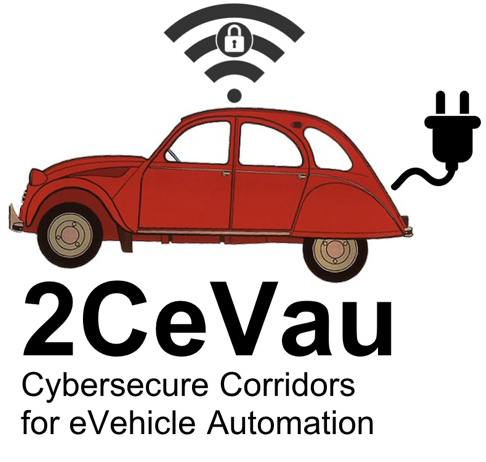2CeVau– Cybersecure Corridors for eVehicle Automation – is a project co-funded by the Connecting Europe Facility (CEF) Telecommunication Sector and will develop cybersecurity capabilities for connected vehicles in the context of a complete risk and hazard analysis (threats, vulnerabilities, attacks and countermeasures) focusing on use cases for the “Thessaloniki, Sofia, Belgrade (GR-BG-SRB)” 5G cross-border corridor. It will examine the corridor as a unified set of services, hardware and software components with possible multi-standard, multinational variations exposed to cyber threats. Following this analysis, it will develop a Security Assessment Tool that will increase preparedness for relevant software and hardware components and will facilitate CSIRTs to assess, audit and report security issues for the 5G corridor.
Objectives
- Define the 5G corridor assets that should be protected by considering the connected vehicles together with the associated infrastructure/services as a target of evaluation;
- Identify threats and potential vulnerabilities that can compromise assets for the 5G corridor crossing;
- Perform attack modelling, develop new dependability methods and define countermeasures able to protect system assets;
- Develop a reporting-auditing assessment toolkit that can be integrated in CSIRTs in order to facilitate their insights on 5G-enabled Intelligent Transport Systems (ITS) and highways.
The project consortium is comprised by the University of Piraeus Research Center (UPRC), the Institute of Communication and Computer Systems (ICCS) and the Hellenic ministry of Digital Policy, Telecommunications and Media, that holds a leading role in the establishment of the above corridor.
The I-SENSE Group of ICCS is participating at the 2CeVau project with main responsibility the design and the specification of the Security Assessment Tool (SAT) as well as the reference implementation for the 5G corridor test-case.


